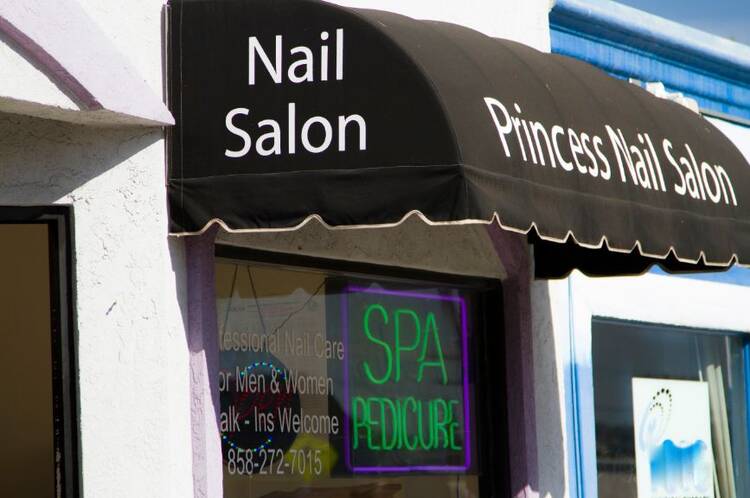Kansas Gov. Sam Brownback was expected to sign a law imposing new restrictions on welfare recipients today, including work requirements and a ban on spending cash assistance on “tobacco, alcohol or sexually oriented materials or at casinos, spas, nail salons, tattoo parlors or fortune-telling businesses, among other places,” according to the Kansas City Star. The law is part of a trend toward shaming recipients of public assistance (see earlier posts here and here), but even some of the harshest critics of the “welfare state” are beginning to question the effectiveness of such measures.
In a National Review column (“Getting Welfare Reform Right”), the Cato Institute’s Michael Tanner questions the logic behind no-no lists: “One of the very real problems with our current welfare system…is that it infantilizes recipients. We cannot expect welfare recipients to become independent and self-supporting if we continue to treat them like six-year-olds getting their allowance. We should treat recipients as adults and expect them to make adult decisions, which includes budgeting and making the best use of their money just like the rest of us. If they blow the money on fortune tellers, they will have to suffer the consequences.”
Tanner is hardly a champion of the safety net. In the same column, he declares the War on Poverty a failure, saying “We may have made poverty more comfortable, but we are not helping people become independent and self-sufficient.” He concludes, “Ideally, the whole system should be dismantled and replaced by private charity.” But Tanner does not see the spending restrictions, nor the drug-testing of public-assistance recipients, as doing anything to move people from welfare to work.
He’s right. Treating public assistance recipients like children only reinforces feelings of dependency—and worse. The Kansas ban on spending cash assistance on “sexually oriented” materials is similar to restrictions on prisoners, who are considered to have thrown away their First Amendment rights by committing crimes. It’s easy to sniff that people who don’t earn enough to support a household should be out looking for more work instead of collecting dirty magazines, but this same logic could be extended to prevent recipients from going to escapist movies or buying “subversive” books. (Maybe Elizabeth Warren’s autobiography?) Should welfare recipients also be barred from attending political rallies or participating in voter-registration drives on the grounds that their time would be better spent filling out applications at Walmart and McDonald’s?
The comparison of public assistance recipients to prisoners is also apt because they are easy targets for politicians looking to score headlines. There has been a raft of laws imposing charges on inmates for meals, clothing, and even toilet paper (the Brennan Center for Justice questions the constitutionality of such “pay-to-stay” laws). Any state legislator with enough initiative can think of a law imposing new costs on inmates and their families, just as any sheriff with higher political ambitions can get on local TV by requiring prisoners to wear pink uniforms. Libertarians and advocates for the poor can find common cause in trying to minimize such micro-management and grandstanding.
In his National Review piece, Tanner applauds the work-requirement provisions in the new Kansas welfare law, as well as new requirements in Maine that “able-bodied adults on food stamps participate in some form of work activity.” This is another possible area of common ground—as long as “work activity” includes, as it does in Maine, volunteer work at food pantries and other nonprofit organizations. Holding the poor accountable for a lack of jobs in their communities is another perversity that doesn’t deserve to be called “reform.”









Thank you for this. For more examples of right libertarians taking the diginity of the poor more seriously than usual, see the blog Bleeding Heart Libertarians, especially the work of Jessica Flanigan. She advocates, for instance, a universal basic income, which could give people maximum flexibility in determining how to meet their basic needs.